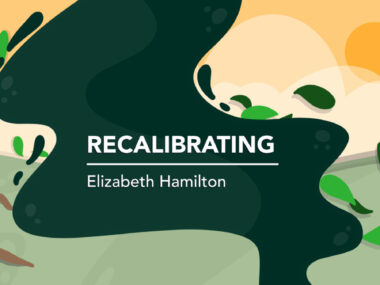Finding Grace in Relatable Stories From My Community
Written by |

I pride myself on getting a lot done and being a productive individual. Although I enjoy some downtime here and there, I often feel pressure from my unfinished tasks or my never-ending to-do list. That pressure makes it hard for me to watch TV, especially a series I can easily stream. If I’m not careful, my attention will be captivated by Detective Bosch and I will find myself in the midst of an internal tug of war for seven seasons.
Friedreich’s ataxia drains the energy out of me in ways that can be hard to predict. I often like to think I’m a teenager and can keep on going like the Energizer bunny. Of course, every time I fill up my schedule or plan a jam-packed trip, I find myself exhausted and ready to sleep for weeks.
I often hear people say things like “I can sleep when I’m dead” or “You can’t seize the day in your dreams.” I won’t argue with those statements — I understand their intentions.
But what works for some doesn’t work for all.
Thankfully, somewhere along the way I learned to allow myself to rest when my body needs it, giving more weight to my own experiences with rare disease rather than catchy phrases. Despite this permission, it can still be hard to lie low or sleep in when necessary.
The last couple months have been busy in almost every sense of the word. The usual suspects are always first in line: my job, my chores, and my errands. Beyond those, there was a death in the family that pulls a lot of my attention every day, and my brother’s ongoing recovery from his spinal cord injury seems to follow the trajectory of a roller coaster at times.
I wrote specifically about the importance of rest a while back, but that isn’t exactly what’s on my mind today.
I often hear people talk about the rare disease community and the power in connecting with others who can understand or relate to your concerns and experiences.
I frequently think of the way this community can relate to the “big things.” Many can empathize with the constant monitoring of major organs, the frequent hospital visits, the expensive medical bills, the awkward and sometimes heartbreaking social interactions with people who are unfamiliar with disability or rare conditions.
I’ve recently come to appreciate how often other rare disease patients or disabled individuals seem to talk (or post) about the small things, even the ways in which they prioritize rest. Knowing that other people struggle to balance productivity with rest reassures me that I’m not alone. In a sense, it encourages me to prioritize myself and what my body needs.
Thus, I went to bed one night this past weekend without setting an alarm, on purpose. I slept for 13 hours and I didn’t feel any guilt. Instead, I let my body tell me when it was done resting.
In contemplating the encouragement I find from other people on social media sharing their juggling acts or stories of how they easily spill their coffee or get bruised up falling into furniture, it dawned on me why I write this column: I share my thoughts and experiences in the hopes that it gives my readers someone to relate to, some approach to consider, some nuance to laugh at, and ultimately, encouragement to prioritize themselves and their health. After all, everyone spills their coffee; why should I feel singled out?
We don’t need to have the same conditions or the same symptoms, but when I realize I’m not the only one dealing with a “thing” — big or small — it allows me the grace to keep moving forward. I hope you give yourself plenty of grace, too.
***
Friedreich’s Ataxia News is strictly a news and information website about the disease. It does not provide medical advice, diagnosis or treatment. This content is not intended to be a substitute for professional medical advice, diagnosis, or treatment. Always seek the advice of your physician or another qualified health provider with any questions you may have regarding a medical condition. Never disregard professional medical advice or delay in seeking it because of something you have read on this website.The opinions expressed in this column are not those of Friedreich’s Ataxia News or its parent company, Bionews, and are intended to spark discussion about issues pertaining to Friedreich’s ataxia.







Leave a comment
Fill in the required fields to post. Your email address will not be published.